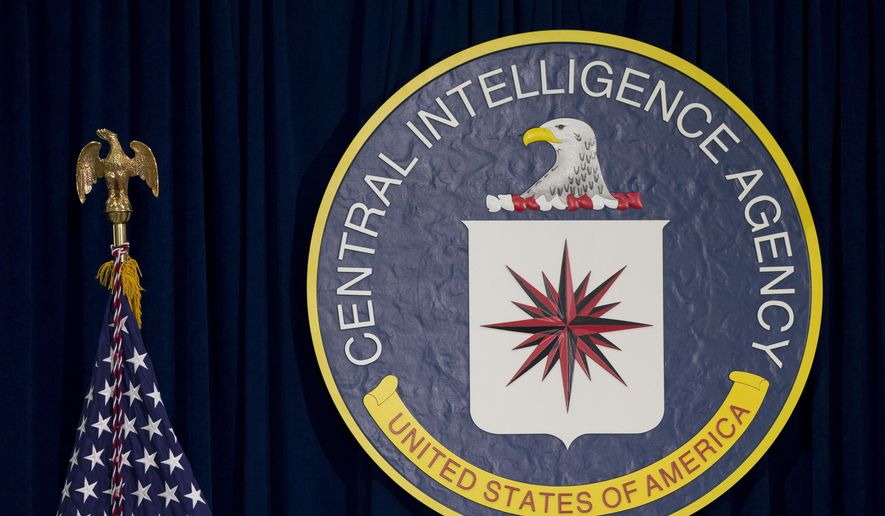CIA Director Mike Pompeo says he’s taken aggressive measures over the past year to improve the agency’s counterintelligence operations — an assertion that comes amid heated debate over the scope of China’s penetration into the U.S. intelligence community following last week’s arrest of a Chinese-American former CIA case officer accused of spying for Beijing.
One of the first moves Mr. Pompeo says he made upon taking over at the CIA was to reorganize things so that “the woman who runs our counterintelligence mission center reports directly to me now.”
Mr. Pompeo, who made the remarks in a public appearance at the American Enterprise Institute think tank on Tuesday did not identify who exactly he was referring to, nor did he elaborate on how the CIA counterintelligence protocols were organized prior to his arrival at the agency.
“I came in as the director a year ago intent on improving our capacity to protect our own information,” he said. “We should make sure that the secrets we steal aren’t restolen.”
His comments come amid revelations of what sources have told The Washington Times is a ferocious debate within the CIA and the FBI over the extent to which Chinese spies have infiltrated the intelligence community in the wake of the arrest and charging Jerry Chun Shing Lee, 53, in U.S. federal court in Virginia.
While major unknowns surround the Lee case, an FBI affidavit says he was found — well after he left the CIA — to have notebooks full of agency asset names and phone numbers. Several news organizations have speculated that Mr. Lee played a role in an alleged intelligence breach that might have betrayed as many as 20 clandestine CIA informants in China back in 2010 and 2011. The informants were imprisoned and in some cases executed.
With that as a backdrop, some argue that U.S. intelligence agencies are simply ill-equipped to counter Chinese espionage methods. “We don’t dedicate enough resources to counterintelligence against Chinese operations, influence operations, espionage against U.S. government secrets or economic espionage,” said Michael Pillsbury, a Mandarin-speaking analyst who has worked on China policy and intelligence issues for every U.S. administration since Richard Nixon was president.
“Whether it’s human intelligence or cyberactivity, we just don’t have anywhere near the resources necessary,” Mr. Pillsbury told The Times in a recent interview, adding that Congress should require the White House to produce an annual report on the scope of Chinese spying so Capitol Hill can begin to address the lack of resources.
Mr. Pompeo said Tuesday that he’s intent on ensuring the CIA “has the resources it needs to deliver on its counterintelligence mission, which includes making sure that we’re doing offensive counterintelligence that is working against our adversary services in a way that prevents them from getting inside of our service.”
“I’ve made a number of changes, one of which is to make sure that we’re providing the information so that the Department of Justice can do its good work in bringing these traitors to hell in the U.S. courts,” he said.
With regard to also making the agency’s counterintelligence mission center chief to report directly to his office, Mr. Pompeo said the move was intended to send “a signal to two places, one to our adversaries that the CIA is going to be serious about protecting our stuff, and second to my workforce, to let them know that the director was personally attentive to a mission that can fall to far down on the priorities list.”
“To me,” the CIA director said, “there are few things more important than protecting our officers, our assets and our information.”
• Guy Taylor can be reached at gtaylor@washingtontimes.com.




Please read our comment policy before commenting.